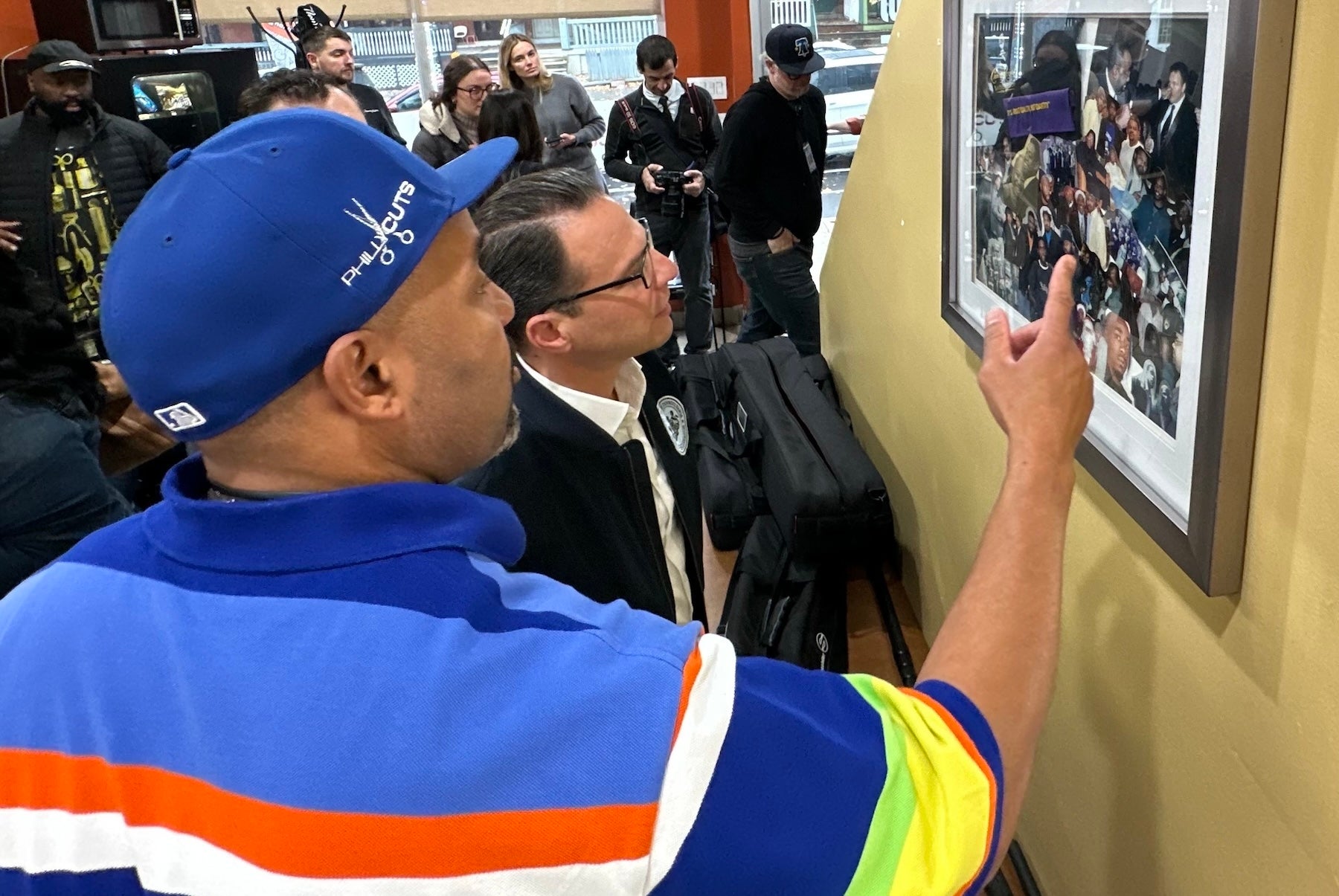Jobs
Soft Hiring Supports Case For Big Fed Rate Cut

The August jobs report revealed a modest rebound in hiring, as the U.S. economy gained 142,000 payroll positions, but job growth was revised much lower for June and July. The unemployment rate reversed only part of July’s jump. After the jobs report, the S&P 500 slipped 0.5% on Friday morning as markets went back and forth on chances of a half-point Federal Reserve rate cut at the Sept. 18 policy meeting.
↑
X
This Is How The Jobs Report Data Influences The Fed And Interest Rates
Jobs Report Hits And Misses
The 142,000 overall employment gain trailed economists’ 160,000 forecast, according to Econoday. Private-sector employers added 118,000 jobs, missing 136,000 forecasts. Government jobs rose by 24,000.
Hiring gains in June and July were revised down by 86,000 jobs. Over the past three months, the average monthly job gain has fallen to 116,000, with just 96,000 in the private sector.
Average hourly earnings rose 0.4% in August, above 0.3% estimates. Twelve-month wage growth of 3.8% exceeded 3.7% forecasts.
Stock Market Futures: Market Is Breaking Support As AI Giant Broadcom Dives
Household Survey
The headline job and wage figures come from the Labor Department’s monthly survey of employers. The separate household survey details labor force participation, work status and the unemployment rate.
The dip in the unemployment rate to 4.2% from 4.3% matched forecasts. That came as the ranks of the employed grew by 168,000, outstripping the 120,000 rise in labor force participation. As a result, the ranks of the unemployed fell by 48,000.
The number of people working part-time for economic reasons, such as slack business conditions, jumped 264,000 to 4.83 million, the highest since May 2021.
More Jobs Report Details
Health care and social assistance employment rose by just 44,100, well below the average monthly increase of nearly 77,000 over the past year.
Leisure and hospitality employment grew by 46,000.
The construction industry added 34,000 jobs, but manufacturers cut 24,000. Retailers shed 11,100 jobs.
A diffusion index measuring the breadth of hiring across industries rose to 53.2 in August from 47.8 in July. Numbers below 50 mean that more industries are firing than hiring. The diffusion index stood at 61 a year ago.
Fed Rate Cut Odds
After the August jobs report, odds of a half-point rate cut at the Sept. 18 Fed meeting briefly rose close to 60%, then slipped to 37%, little changed from Thursday, according to CME Group’s FedWatch page. Now markets see 87.5% odds of at least a full-point in Fed rate cuts by the end of the year, up from 85% ahead of the data. With just three Fed meetings left this year, that implies a strong likelihood of a half-point cut at one of the year’s final meetings.
At his speech in Jackson Hole, Wyo., late last month, Federal Reserve Chairman Jerome Powell warned that “downside risks to employment have increased.” Powell made clear that Fed policymakers “do not seek or welcome further cooling in labor market conditions.”
That suggests the Fed is in danger of “falling behind the curve.” The challenge for the Fed is that interest-rate cuts work their magic on the economy with a long lag. The upshot is that a faster pace of easing may be needed to support the labor market.
Wall Street’s Take On Jobs Reports
Scott Helfstein, Head of Investment Strategy at ETF manager Global X, wrote that the 142,000 new jobs and relative strength of the consumer show “there is no crisis, and the Fed can be patient.”
Seema Shah, Chief Global Strategist, Principal Asset Management, wrote that the “significant negative revisions to July’s already weak number, coupled with a softer-than-expected August number,” argue for a half-point Fed rate cut. “With inflation pressures subdued, there is no reason for the Fed not to err on the side of caution and frontload rate cuts.”
“If the Fed hesitates and opts for a 25bp cut— we hope for more, but our 0.3% core CPI forecast for August makes us hesitate — we think the data will force them to be bolder at subsequent meetings,” wrote Ian Shepherdson, chief economist at Pantheon Macroeconomics.
S&P 500
The S&P 500 slipped 0.6% in Friday morning’s stock market action after the jobs report. On Thursday, the S&P 500 fell 0.3%, bringing its three-session losing streak to 2.6%. That left the S&P 500 slightly below key support at the 50-day moving average.
Through Thursday, the S&P 500 stands 2.9% below its all-time record closing high on July 16, though still up 15.4% for the year.
Be sure to read IBD’s The Big Picture column after each trading day to get the latest on the prevailing stock market trend and what it means for your trading decisions.
YOU MIGHT ALSO LIKE:
These Are The Best 5 Stocks To Buy And Watch Now
Join IBD Live Each Morning For Stock Tips Before The Open
IBD Digital: Unlock IBD’s Premium Stock Lists, Tools And Analysis Today
AI News: Artificial Intelligence Trends and Top AI Stocks To Watch
Election 2024: Why The S&P 500 May Vote No On A Trump Or Harris Sweep









